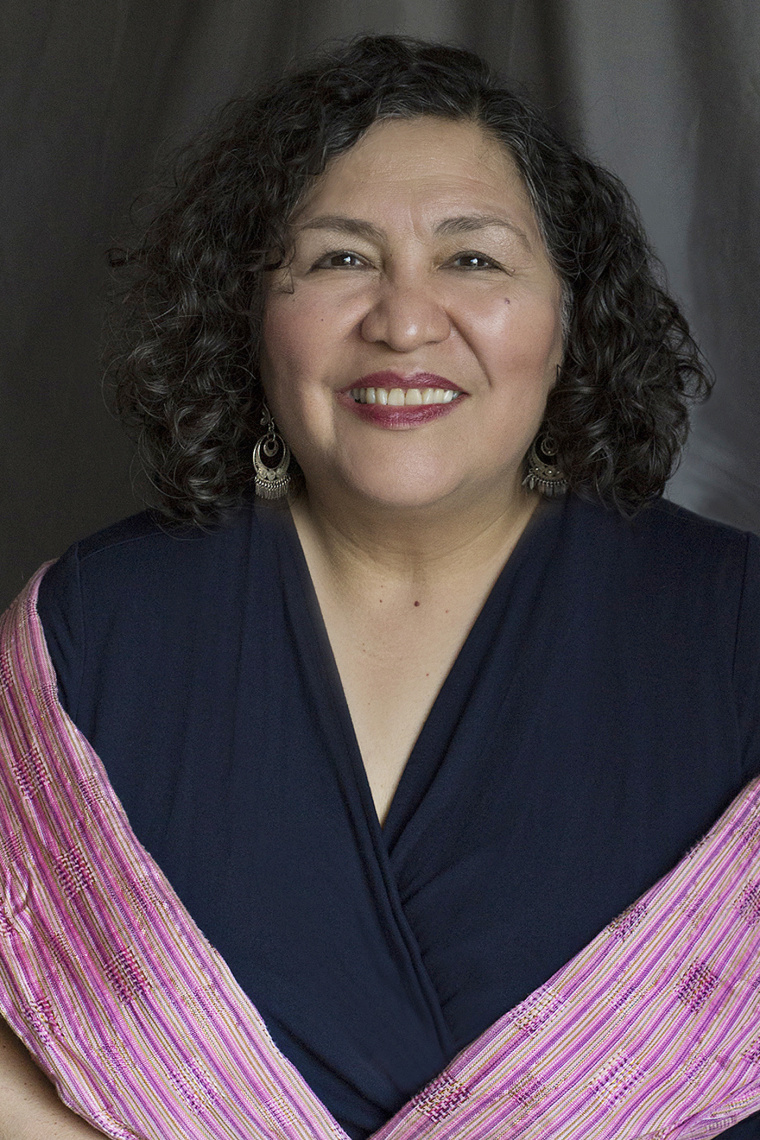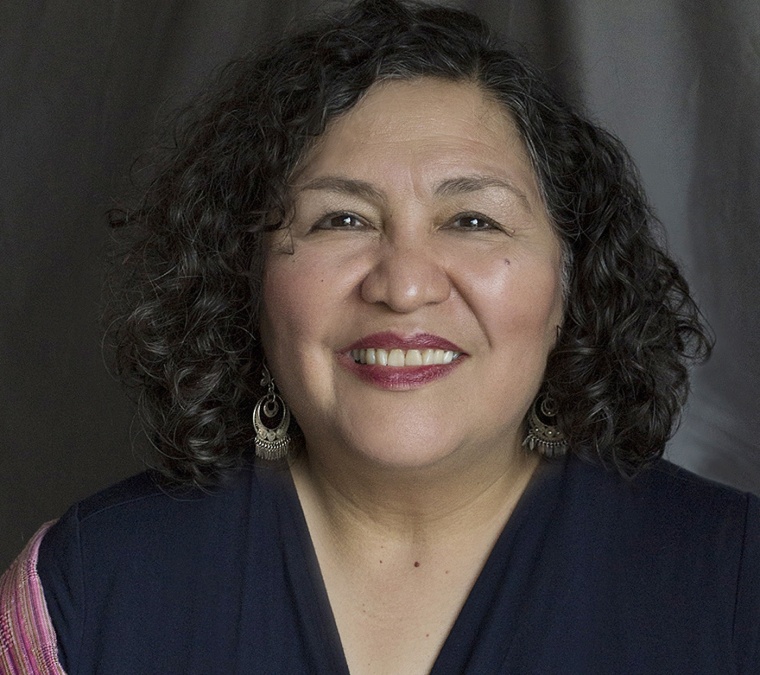
NAME: Sylvia Puente
HERITAGE: Chicana
HOMETOWN: Maywood, IL
OCCUPATION/TITLE: Executive Director, Latino Policy Forum
Sylvia Puente leads the only public policy and advocacy organization in the Chicago metropolitan area working to improve educational outcomes for children, make housing accessible and affordable, promote immigration reform, and build the influence and leadership of the Latino community.
Did you always know you wanted to grow up to be the head of a nonprofit organization?
I didn’t know what I was going to be when I grew up, but both of my parents were farmworkers and involved in the movement. My first picket line, I was 13 years old and the UFW was in full bloom. It was junior and senior high school when I got this insight: protest politics is good and marches and picket lines are all good vehicles for social change and for speaking out when you see injustice. But the realization came to me – I don’t know where it came from – that there’s more than just marches and demonstrations. You have to have the data, the information, to quantify that the inequality exists and to tell the story of what justice and equity could and should look like. But I was very young and didn’t how to implement or actualize that thought so I had to figure out.
"There's more than just marches and demonstrations. You have to have the data, the information, to quantify that the inequality exists and to tell the story of what justice and equity could and should look like."
So you went to college and found your niche?
Not exactly. It wasn’t until my third job after college, in the Springfield, Illinois government budget office that I learned there was such a discipline as “public policy.” I was from a family that had lived five generations in this country going back to when Texas was still part of Mexico and I was the first in my family to go to college. I didn’t even know you could study public policy at school. It wasn’t until I realized most of my colleagues had masters degrees in public policy that I understood that it is the discipline that really addresses societal issues.
Was it pretty straightforward for you, getting from grad school to your work in advocacy?
I knew I wanted to spend the rest of my career trying to answer the question “How do you make society better?” But at the time I couldn’t have imagined there was an organization like the Latino Policy Forum. So I went to grad school and there were challenges and struggles – it wasn’t a cakewalk – but those early days of having examples of both my parents being involved in their own way was a great inspiration. They had no role models but they organized Latinos in the suburbs in the 1960s and they set the example of speaking up.
So though I didn’t know what I was going to do, I knew I wasn’t going to be silent or quiet – that was the perceived stereotype and expectation of women at that time. I knew I was going to use power and my voice to create justice. I didn’t have a clear path, there were twists and turns along the way, but I was very fortunate and blessed with the confidence of knowing that though no one had even been on this path before me, it was what I was supposed to do.
Forging a new path is exciting when you’re young, but also scary. How do you guide the younger generation as they find their way?
I tell young people that my first job out of college was with a major corporation and I knew pretty quickly, “This isn’t going to get me there” but that was OK. Every experience will come in handy somehow and you learn so many lessons along the way. As long as you’re working toward where you eventually want to be, you’re OK.
For me, the biggest lesson to pass on is that I’ve achieved a lot but it’s not that I’m so smart. These days the young Millennials, they blow me away, but I always tell them that the confidence that I speak from comes from the data and the power of the collective to articulate the story it tells.
Really, none of us do it alone, I’m most proud of the 100 organizations we work with, we all believe in justice and equity and equality and we work together. And with widening economic gaps impacting all communities of color, we have to continue to intentionally build bridges and strengthen relationships.
My favorite quote is from Margaret Mead – “Never doubt that a small group of committed citizens can change the world; indeed, it is the only thing that ever has.”
What’s your secret to success?
I believe in the power of intention – you set your intention, focus on your intention, write down your goals and then be pragmatic enough break it down and figure out how to make it practical, figure out how every decision gets you closer to your goal.
And then – whether you call it prayer, the universe, whatever you believe, spiritually – you have to know that whatever you want isn’t going to happen unless you envision it. I’m grounded in the belief that there is something bigger than me and that provides me with the courage, the inspiration to do what needs to be done. I nurture that – I have a little reminder on my desk, right by my computer that says, “Expect miracles.” And I do expect miracles! When I can’t figure out how I’m going to get there, what’s going to happen or how I’m going to get through something, some resource presents itself. I need someone and they call me or I need funding and a grant comes through. It doesn’t work for every little thing, but for the important things I expect miracles all the time and make sure I say “Thank you.”
Esther J. Cepeda is a Chicago-based journalist and a nationally syndicated columnist for The Washington Post Writers Group. Follow her on Twitter, @estherjcepeda
